The famous fiddler, Melvin (Mel) Joseph Clifford Bedard, was born on February 8th, 1929. Mel’s mother came from Little Black River Indian Reservation, now Black River First Nation and his father came from Quebec, just north of Montreal. They migrated to Selkirk in 1899 where Mel was born.
When Mel was five, the family moved to the Central Manitoba Gold Mine for a few years while his father worked. His father, wanting to try his hand at homesteading then moved the family back to Little Black River. However, there was no school for the children to attend so homesteading was short lived. The family moved back to Selkirk in 1941.
Music was always in the background of the Bedard family. Mel’s uncle had passed on a fiddle which his father played a few times. Mel grew up hearing fiddle music at dances and events, as well as in the home as his father could play a few tunes. Later, when the community received a radio, Mel would often hear the well-known fiddler, and later good friend, Andy de Jarlis, play on air. At school, music was required, which turned out to be Mel’s best subject. He started playing guitar at age 14, but always loved the sound of the fiddle.
Shortly after the move back to Selkirk, Mel’s father’s health declined. Mel’s older brother left school at 12 years old to work. Mel remained in school until age 15, when he too found work to support the family. He worked in road construction, and then as a lumberjack around Thunder Bay. Later, he left Selkirk for a logging job in British Columbia along the coast. He returned to Selkirk in 1950, a few weeks before his 21st birthday and found work as a dredge master in the Public Works Department for the Federal Government. The job was intended to be temporary, but it turned into a 37-year career.
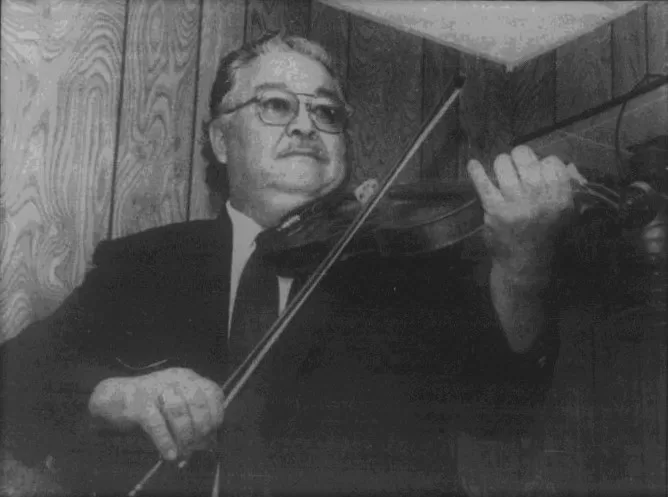
Finding Fiddling
While at home from British Columbia, Mel picked up his father’s old fiddle to see if he could learn to play it. With his experience playing guitar, he understood the chord structure, and with three Don Messer records to study from, Mel learned to play a tune in every key in just six weeks.
On his birthday, Mel was invited to a house party and a jam session as a guitar player. Late at night after he thought everyone was asleep, he picked up a fiddle and began to play a tune in b-flat. Everyone was up immediately asking him to play the tune again. Realizing the other fiddlers didn’t know how to play in that key, or the scale on the fiddle, Mel was hooked.
At first Mel had perfected Don Messer’s style from listening to his CD’s, but when he met his good friend and mentor, Andy de Jarlis he became a master of the Red River Jig Style. Mel was lucky enough to become friends with both his fiddler inspirations, Andy de Jarlis and Don Messer. Don Messer would come to Mel’s house on occasion to fiddle with Mel.
By the 1980s he had recorded two albums, the first of which came out in 1984. 2000 copies sold in the next five years. Mel was the first Métis man to use the term ‘Métis’ on a record sleeve.
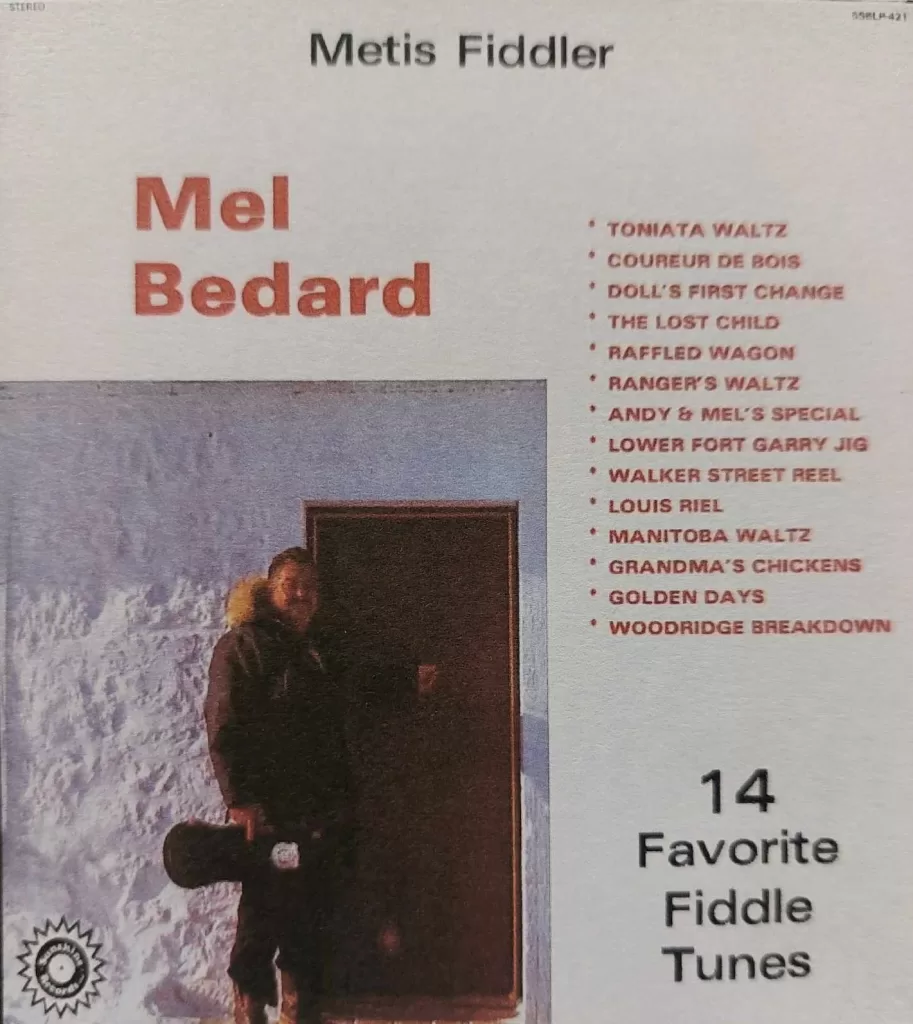
Mel attended fiddling competitions all through the 1970s and 1980s. Competitions often took place in small communities and would last the entire weekend. When the competition portion was over, the jamming would begin. Jams would carry on until dawn and Mel was often the last one standing. Mel won over 80 awards from different competitions, one of which was the Andy de Jarlis Trophy at the Festival du Voyageur in Winnipeg. The trophy can be seen on another album cover. Despite competition prize money being quite profitable, anywhere from $500-$1300, Mel said, “it’s the fellowship that’s most satisfying.”

Fiddling Through Retirement
After his retirement in 1988, fiddling really took off. In 1989, Mel was invited to the Dakota Centennial Folklife Festival in North Dakota. At the time he was the only Canadian to cross the border for the festival in Bismark. Mel continued to fiddle across Canada and the United States, enjoying every place he went.
In 2001, he went on tour in Ireland with the Gabriel Dumont Institute, and a year later he brought home the first-place prize in the Over 71 category at the 21st Annual Minnesota State Old Time Fiddle Championship. Mel performed at a Canada Day celebration in Ottawa and on air in Belcourt, North Dakota, and on CBC Radio. While working with CBC he met some well-known people such as Sierra Noble, and Patty Kusturok. Mel became an adjudicator as well as a mentor to up-and-coming performers, such as Patti Lamoureux who he would often coach and teach her tunes over the phone.
He was inducted into the International Music Camp’s Fiddlers Hall of Fame in June of 2013 in the Métis Fiddler category. He passed in 2014 at the age of 85. Mel’s music spread through the communities he travelled to and played for. He restored tunes which had been lost, such as Lower Fort Garry Jig and Lost Child, preserving Métis culture for future generations. His legacy continues to spread through his family as many of his grandchildren and greatgrandchildren are singers and guitar players.
Mel Bedard Collection


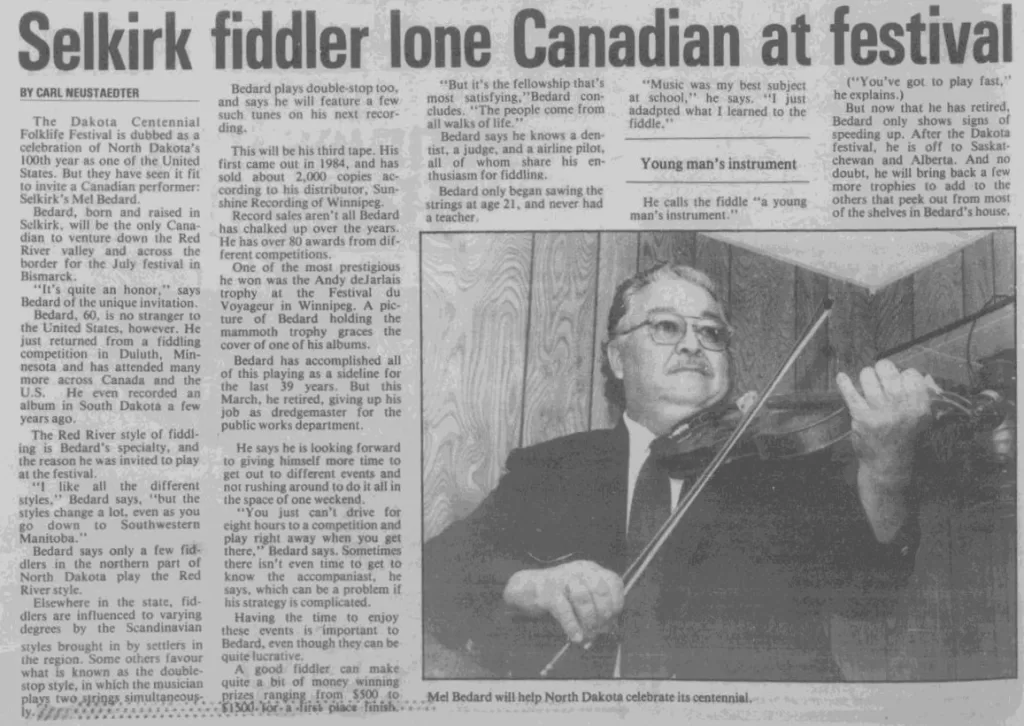

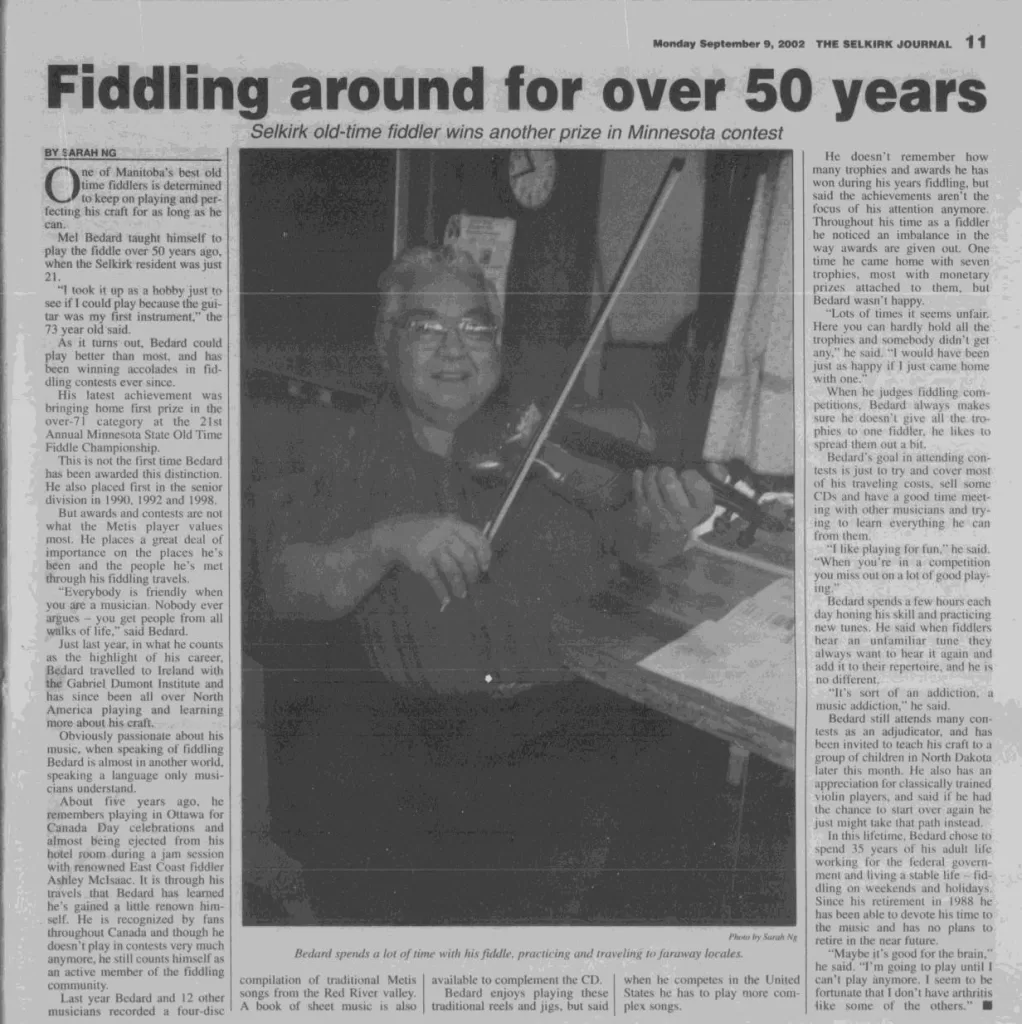
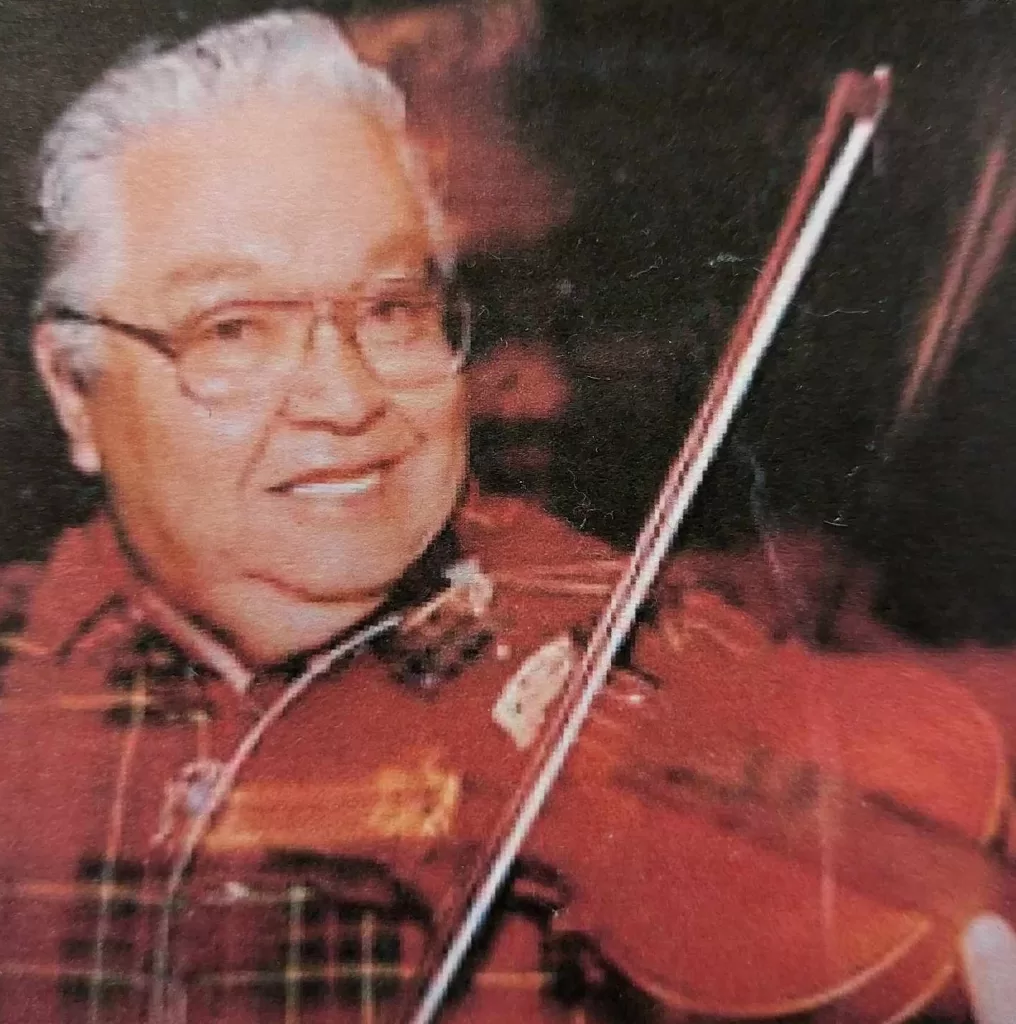
Sources
Métis Museum – Gabriel Dumont Institute
Selkirk Journal Articles 1989 and 2002
CBC Article
Manitoba Fiddle Association
Oral History Interview with Paul Bedard and Beatrice Bedard

